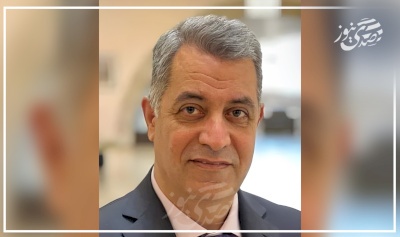
On the Constitution and the Interim Constitution (1-3)

Palestinian President Mahmoud Abbas issued a decree and a presidential decision, according to the Palestinian news agency, to form a committee for drafting an interim constitution. The wording of the news published by the agency suggests ambiguity regarding the purpose of the decree and the presidential decision, whether it is for writing an interim constitution or for the state constitution of Palestine. "The committee is seen as a legal reference for drafting the interim constitution, ...., paving the way for the establishment of the State of Palestine and its institutions through preparing a draft constitution."
The Meaning of the Word Constitution and Its Uses
The word "دُستور" (Constitution) is of Persian origin, meaning "the foundation" or "the base" in Arabic. It conveys the meaning of "permission" and "license." According to Dr. Mustafa Jawad's comprehensive dictionary, the constitution (with a stressed 'd') is a Persian term that has been Arabized, meaning the great minister to whom matters are referred. Its origin is the notebook in which the laws and regulations of the king are compiled, thus the minister is named that because what is in it is known, or because he resembles it in being a reference, or because it is in his hands, or because it is not opened except in his presence. In English and French, this word corresponds to the term (Constitution), which means "the foundation" or "the organization" or "the formation."
The word constitution has become commonly used since 1923 following the issuance of the 1923 Constitution in Egypt. Before this date, the commonly used expressions included "organic law" or "basic law" or "the basic system of governance" or "state law" to refer to the constitution itself.
The word constitution is used in Arab folklore for seeking permission and licensing for strangers to enter homes or places where women are present. Men typically say it if they want to inform women of their presence, passing, entering, or exiting. It is also used to communicate with jinn; for instance, before a woman pours hot water on the ground, she warns, saying, "Constitution, O present ones!" ... "Put your hands on your children's heads; do not say we did not tell you." All this serves as a warning not to harm a jinn, lest they retaliate, or when summoning jinn by saying, "Constitution, O our lords," which is accompanied by fear and hope that the possessor of the constitution will find a solution to the problems they face.
The Interim Constitution Is Not Always a Good Omen
Interim constitutions usually arise after a coup or revolution against a ruling regime, indicating a fundamental change in the structure of executive power. Recent Arab experiences, specifically post-Arab Spring, with some Palestinian politicians describing them as leading to chaos and destruction, indicate that interim constitutions were established after the flight of Zine El Abidine Ben Ali from Tunisia, the resignation of Mohamed Hosni Mubarak from Egypt, the killing of Muammar Gaddafi in Libya, the killing of Ali Abdullah Saleh in Yemen, the coup against Omar al-Bashir in Sudan, and finally the flight of Bashar al-Assad from Syria, countries that have mostly been devastated and destroyed.
Conversely, countries that respected their people and prevented sliding into chaos developed their political structure by conducting free elections and amending their basic law ("constitution") to achieve the purpose of governance and the interests of citizens, such as Morocco, Algeria, and Jordan, or changed their practices by creating a cultural transformation in social structures and institutions, as Saudi Arabia did after 2014.
In my view, the existing Palestinian basic law achieves the possibility of transitioning from authority to state as stated in the presidential decree, especially since Article 115 states, "The provisions of this basic law shall be in effect during the transitional stage and may be extended until the new constitution of the State of Palestine comes into effect." Thus, the serious matter here relates to activating its provisions and conducting general elections to complete the "constitutional" political experience in a manner that achieves the benefits of governance and the interests of the people.